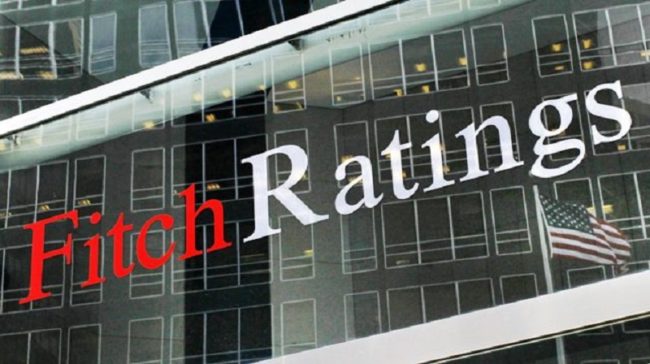Fitch Ratings Tuesday downgraded Nigeria’s Long-Term Foreign-Currency Issuer Default Rating (IDR) to ‘B’ from ‘B+. The country’s outlook is negative.
The international rating agency said the downgrade and Negative Outlook reflect the aggravation of ongoing pressures on Nigeria’s external finances following the recent slump in oil prices and the pandemic shock.
The plunge in international oil prices, which we assume will average of $35/barrel in 2020 after $64.1/barrel in 2019, highlights Nigeria’s high dependence on the oil sector, with hydrocarbon revenues representing 57 per cent of current-account receipts and nearly half of fiscal revenue over the last three years.
This shock exacerbates the overvaluation of the naira and remedial policy actions taken by the Central Bank of Nigeria (CBN) will not suffice to address deteriorating external imbalances, in our view. The CBN allowed the exchange rate on the Investor and Exporter Window, on which the bulk of foreign-currency (FC) transactions is held, to depreciate by 6.7% since mid-January and devalued the official exchange rate by 15% in March.
The scope of the enacted adjustment is small relative to magnitude of the shock as well as to the steep real effective exchange rate appreciation of more than 30 per cent since end-2016. Real appreciation was driven by persistent high inflation averaging 13.3 per cent in 2017-2019 amid rigid nominal exchange rates. Continued pressures on the naira are illustrated by the drawdown in international reserves, which declined by 9.4 per cent year-to-date, representing a cumulative fall of 22.5 per cent since their peak mid-July.
It said continued reluctance to adjust the exchange rate, portfolio outflows and a wide current-account deficit (CAD) will lead FC reserves to fall to 2.5 months of current account payments at end-2020 under our forecasts, well below the historical ‘B’ median of 3.8 months, and their lowest level since 1994.
Intensifying external pressures raise risks of disruptive macroeconomic adjustment given Nigeria’s precarious monetary and exchange rate policy setting and lack of fiscal buffers. The shock will also raise government debt and interest payment-to-revenue ratios from already particularly high levels and lead to a renewed economic recession.
“We expect the pandemic shock to push the Nigerian economy into recession with GDP contracting by one per cent in 2020. Non-oil GDP will fall, weighed down by spillovers from the oil sector, tighter foreign currency supply and disruptions to economic activity from measures taken to contain the spread of the coronavirus as regions accounting for nearly half of the national economy were put under a two-week lockdown in March”.
” We expect GDP to bounce back by 4.4 per cent in 2021 assuming a gradual normalisation of economic activity and stable oil production but risks around our baseline are tilted to the downside given uncertainty regarding the spread of the pandemic.
Nigeria’s ‘B’ rating also reflects the following rating drivers:
Materialisation of large contingent liabilities on the government’s balance sheet could cause a steeper rise in GG debt than our current forecasts,” it added.
The collapse in oil prices will pressure already overstretched state and local governments’ resources, possibly requiring financial assistance from the FGN. Delays to electricity tariff hikes and to restructuring plans following the pandemic outbreak will raise needs for further support to the ailing electricity sector.
Asset quality in the banking sector is weak, with non-performing loans of 11.7% of total bank loans at end-2018 and an elevated proportion of restructured loans. It is likely to deteriorate given high bank exposure to the oil sector and broad weakening of the operating environment, which could prompt capital injections by the sovereign. This is in addition to contingent liabilities from the debt of the Asset Management Corporation of Nigeria of 3.3% of GDP at end-2018.
Nigeria has an ESG Relevance Score of 5 for both Political Stability and Rights and Rule of Law, Institutional and Regulatory Quality and Control of Corruption, as is the case for all sovereigns. Theses scores reflect the high weight that the World Bank Governance Indicators have in our proprietary Sovereign Rating Model. Lingering insecurity causes disruptions to the economy, while deep regional divisions hinder policy-making.



